

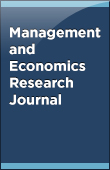
10.18639/MERJ.2024.9900087
Special Issue
May 28, 2024
Special Issue S8: “FDI Inflows in the Brazilian Economy”
Brazil has long depended on IFDI to boost economic growth. Its membership in the BRICS grouping since 2001 has increased links with two of the world’s fastest-growing economies – China and India. However, Brazil has not been a strong economic performer within the BRICS group, attracting only a modest share of IFDI both globally and intra-group, in part because of its high cost of doing business. Brazil’s primary benefits of BRICS membership have come from increased trade, involvement in alternative governance arrangements, and broader support from China. Economic reforms, both domestically and internationally, are critical to Brazil’s continuing success in attracting IFDI.
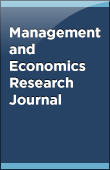
10.18639/MERJ.2024.9900086
Original Research Article
May 13, 2024
This study aimed to assess the efficacy of internal and external hiring practices as tools for strategic human resource management in the Zambian Insurance industry. The investigation analyzed the strengths and weaknesses of both internal and external hiring strategies, with a specific focus on their impact on organizational performance and employee development. Through an extensive examination of existing literature, interviews with industry professionals, and a survey of senior executives responsible for recruitment and selection processes in the Zambian Insurance sector, the study gathered data from a sample of both large and small insurance companies operating in different regions of Zambia. This ensured that the entire industry was represented. The study provided valuable insights into the strategic considerations and outcomes of internal and external hiring in this specific context, enhancing our understanding of effective human resource management practices in the Zambian Insurance industry and offering recommendations for improving talent acquisition strategies. The study also looked at the possibility of turning the human resource function in the surveyed industry from a 'day-to-day' issue to a more strategic aspect of the business through a comprehensive hiring plan and the use of internal recruitment with employee retaining strategies. In conclusion, the research findings suggest that the Zambian insurance sector has the capability to utilize both internal and external candidates as a strategic approach. The decision to choose between internal and external hiring is influenced by various factors, including financial considerations, the immediate need to fill a vacant position, the desire to bring in fresh expertise, and the compatibility with the company's culture. Internal hiring offers several advantages for the Zambian insurance industry, such as cost savings, reduced recruitment time, and the ability to foster employee growth and loyalty within the organization. Conversely, external hiring brings in new perspectives, skills, and experiences that may not be readily available internally.
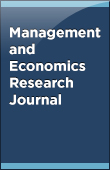
10.18639/MERJ.2024.9900085
Short Communication
Jan 11, 2024
Association of Southeast Asian Nations and Latin American economies are a blend of emerging and developing economies, characterized by regional imbalances and socioeconomic differences. Foreign Direct Investment and Trade has been important for the growth prospects of both the economic region. In this short commentary, we attempt to study the dynamics of FDI and Trade for ASEAN and Latin American economies.
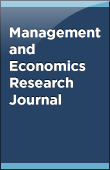
10.18639/MERJ.2024.9900084
Original Research Article
Jan 05, 2024
The link between training and employee performance is critical to human resources management. Though studies have demonstrated the influence of training on employee performance, few studies have attempted to explore this relationship in Tanzania. This study aimed to examine the impact of training on employee performance. The study further explored factors affecting training programs at Kigamboni Municipal Council. A mixed-method approach was applied to explore the phenomena. Both probability and non-probability sampling techniques were applied to obtain respondents for this study. Questionnaires and interview tools were used to collect data. A total of 95 respondents were selected for the quantitative study, and a total of 15 interviewees were selected for the qualitative study. Qualitative data was analyzed using SPSS, and qualitative data was analyzed using content analysis technique. Findings indicate that employees see the influence of training on job performance. Even though respondents see the importance of training on job performance, minimal training programs were believed to affect their performance negatively. The study revealed several factors affecting the implementation of training programs. The study concludes that it is vital for organizations to strategically manage employees’ training programs to ensure that the majority of employees realize their full potential and improve the overall performance of an organization.
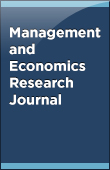
10.18639/MERJ.2023.9900083
Review Article
Dec 26, 2023
The book builds on an important issue of talent acquisition and management in the South African region. Particularly, the focus of different chapters is on the challenges faced in the education system of South Africa. Tracing the developments through the school system to the application of Maslow’s Need Hierarchy theory and entailing other such issues, a comprehensive outcome is suggested for improving the efficiency and effectiveness of the people involved in institutions. In the post-COVID-19 world, a new era of competition has been unleashed, including the employees’ decisions; one of the chapters entitled “Buy, Build, or Borrow a Talent” highlights the contemporary issue. The post-COVID-19 scenario of the world is focused on Industrial Revolution 4.0, and the book addresses the challenges and issues of job security and its impact on talent acquisition. The chapters in the book serve a great need of the world grown out of the pandemic, addressing issues pertaining to organizational culture in the context of the changing scenario. As a research-based book, each chapter considers an important element of talent management from a different perspective. The chapters will keep readers intrigued by the recent pieces of evidence linked with fundamental concepts and conventional theories of human behavior.
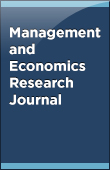
10.18639/MERJ.2023.9900082
Original Research Article
Nov 17, 2023
This paper investigates the extent to which the national economic initiatives introduced in post-apartheid South Africa were successful, why they were removed and why they were unsustainable or indefensible. In order to address the research questions, this study used a qualitative design involving the views of government officials who participated in the formulation of national policies. A total of six officials for each strategy (RDP, GEAR, ASGISA, NGP, NDP, and DDM) were sampled purposively in order to generate rich information on the performance of each policy considered and the decision to replace the policy. A semi-structured survey form was developed for this purpose. The study results show that none of the economic strategies were able to change the trajectory of South Africa’s economic development decisively. The key reasons are the removal of the economic strategies before they achieved the stated objectives potential, the inability to adjust and refocus strategies continuously, and a lack of implementation and monitoring capacity. The study contributes to the understanding of how South Africa’s economic development strategies performed and why they were removed. This informs future approaches to the development and management of economic strategies. The findings suggest that there must be sound and consistent public management to drive and coordinate implementation in order for economic development initiatives to be effective.
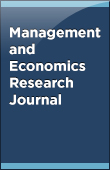
10.18639/MERJ.2023.9900081
Original Research Article
Nov 14, 2023
The global role of outbound logistics in supply chain processes and supply chain distribution cannot be overemphasized. Reviewed literature has shown that empirical tests have been done in relation to outbound logistics and profitability. However, minimal research work has been done on establishing the link between outbound logistics and profitability, particularly among sugar manufacturing companies in Kenya. Semi-systematic review was utilized using secondary data.. The literature reviewed in this study was in regard to sugar manufacturing firms in Kenya published between 2011-2021. The philosophy guiding this study was positivism which is a deductive approach. The review established a significant positive influence of outbound logistics on the profitability of the firms. Evidence links the profitability of sugar manufacturing companies in Kenya and outbound logistics. It was recommended that the firms enhance their focus on outbound logistics in order for their profitability to continue to improve. Researchers can increase activity on this subject and context.
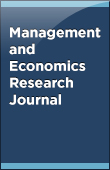
10.18639/MERJ.2023.9900080
Original Research Article
Jul 14, 2023
Using the qualitative approach, the study sought to explore the challenges of managing millennials in the hospitality industry, with a focus on Simbisa Brands Limited. An in-depth interview guide and documentary review were used to collect data, with a sample size of twelve participants. According to the findings of the study, Simbisa Brands' management faces insubordination challenges when dealing with millennials within their organization. It was also observed that excessive social media use by young employees, economic challenges, and overburdened workloads all have an impact on their productivity. Recommendations were that Simbisa Brands management would deal with insubordination by seeking the services of an employment law expert for quick and impartial advice. Importantly, staying organized can help an organization handle a heavy workload by streamlining the process of finding information and making decisions. The organization can also implement a planner system that displays its workload at a glance. Researchers also recommend that Simbisa Brands implement structural reforms that increase work autonomy and flexibility for its millennial employees. Future research could look at private and public sector organizations and use a mixed-method research approach to overcome the limitations of using only one research strategy.
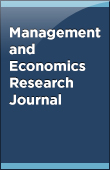
10.18639/MERJ.2023.9900079
Original Research Article
Jun 25, 2023
The health sector in any country is the greatest pillar of wealth generation. The life of citizens and by extension the economy depends largely on an effective and efficient health care system. A harmonious workplace that guarantees satisfaction of workers and employers aspirations is essential for enhanced services provision in the public health sector. Industrial harmony comprises of industrial democracy, employee loyalty, and shared vision. Since devolution of healthcare services in 2013, the Kenyan devolved public health sector has been affected by frequent short and often localized health workers’ industrial actions. The dilemma of the right of employees to industrial action and the citizens’ right to health care are two delicate and conflicting constitutional provisions that continue to elude policy and legislative environment. Industrial action is a protected right that every employee enjoys, however, there is need for a balance between the protection of these rights and the need to guarantee essential public services in order to safeguard citizens and their well-being. This study sought to determine the influence of collaborative stakeholder engagement on industrial harmony in the devolved public health sector in Kenya. The study used pragmatic research paradigm. The study research design was mixed methods research methodology. The study population was 3,355 medical workers in level 5 county referral hospitals, in the Central Economic Regional Bloc (CEREB). The study selected 351 respondents using stratified random sampling. In addition, 10 medical superintendents, 10 secretary generals from KMPDU and 10 from KNUN respectively were selected for participation in the study through purposive sampling. Data was collected using questionnaires and interviews. Data analysis involved both qualitative and quantitative analysis. Qualitative data collected through interview guide was analyzed using content analysis technique. Quantitative data collected using the questionnaire was analyzed using descriptive and inferential statistics. Descriptive statistics comprised means and standard deviation while inferential statistics comprised simple linear regression to depict the relationship between the study independent variables and the dependent variable. The study established that collaborative stakeholder engagement had a positive and significant influence on industrial harmony (=.925, p-value=.000). The study concluded that collaborative stakeholder engagement enhances industrial harmony. The study recommends the expansion of communication/information sharing system so that workers can channel their issues without being victimized as well as establishment of effective internal dispute resolution mechanisms. The devolved healthcare facilities also need to build trust among healthcare workers by being considerate of their work welfare as well as involving them in policy formulation exercises.
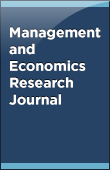
10.18639/MERJ.2023.9900077
Original Research Article
May 01, 2023
It has been reported that workplace violence occurs every other day, and this is quite a misnomer. It ranges from ordinary verbal abuse to getting physical among employees. All forms of workplace bullying should be shunned and completely rebuffed towards creating a more enabling and healthier working environment for employees, as this is the only way to actual growth and productivity of an organization. A reasoning for this study is to acquaint managers with what workplace bullying is all about so that they can take full responsibility for their employees in a way to clamp down on the hazard and provide a better working environment for their employees. Organizations should take conscious efforts by looking into some of the practices and cultures that are operational in their workplace and annul some of them that are promoting workplace bullying. This qualitative study aimed to copiously probe into the phenomenon of workplace bullying, in a way to adequately study the style and pattern, via the use of 1050 questionnaire responses from employees in Cyprus. Results revealed that bullying is more rampant in the workplace, between the superiors/ managers and their junior workers. Junior workers are subjected to different forms of ill-treatment from the superiors like hurling abuses at them, making them work overtime, out of which job intimidation takes the lead. Female workers are more vulnerable to workplace bullying than their male counterparts -but it’s noteworthy to say that the bully can either be a male or female- the question of who bullies is not determined by gender. Employee responses may not however, reflect reality due to the nature of the study and the subtlety of the issue. Further studies can focus in which segments of the industry workplace bullying occurs more frequently, as well as in legislative matters.
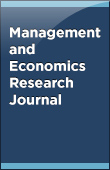
10.18639/MERJ.2023.9900078
Original Research Article
Apr 28, 2023
This research examined student perceptions of asynchronous discussion boards using the focused group methodology using an applied research approach. The research purpose was to explore what online students perceive to be worthwhile discussion board content and interactions in online college courses. Ultimately, the goal was to add to the growing body of literature that fosters a deeper understanding of how to improve both teaching strategy and instructional design and increase both the quality and quantity of student participation. The researchers recruited volunteers from closed undergraduate courses to participate in the survey. Emerging themes included concerns over busy work, excessive time requirements, overly structured discussion boards, and the importance of quality, relevance, professor involvement, and respect. To improve participation, teaching strategy, and instructional design for online courses, each of these themes should be addressed as part of the discussion board design and in the online classroom.
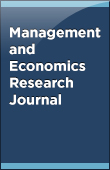
10.18639/MERJ.2023.9900076
Original Research Article
Mar 17, 2023
Different organizations worldwide are increasingly turning to human resource analytics to improve their strategic human resource and business goals. Specifically, this has been necessitated by advances in information technology in the corporate business world. Therefore, this advancement in information technology has heightened expectations and contributed to a very positive perception of human resource analytics. Using HRA to manage the human endeavor, on the other hand, is still marred by different implementation challenges owing to a lack of understanding and appreciation by the key stakeholders. Using an integrative synthesis, the researchers conducted an integrative review of refereed journal articles on HRA Implementation. A search from three major data banks turned up 133 410 hits and according to the search criteria, only twelve relevant articles were reviewed. Consequently, the number of articles in refereed journals and the research question addressed were used to categorize the articles. The articles were classified according to the following four questions: What exactly is HRA? How does HRA function? What are the consequences of using HRA? What factors influence HRA adoption? Researchers concluded that despite information connecting HRA adoption to strategic firm performance, academic research and HRA adoption are extremely low, resulting in a scarcity of evidence on the subject. All in all, such a revelation warrants further investigation through longitudinal and cross-sectional field surveys.
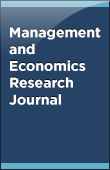
10.18639/MERJ.2023.9900075
Original Research Article
Feb 10, 2023
This study reviewed a number of empirical pieces of literature on cost-benefit analysis origin, advancements in its methods, and their applicability. This study applied semi-systematic review by relying on previous publications (20 publications were fully reviewed) in line with this study topic. The collected data was analyzed with the application of narrative synthesis. There are mixed ideas on the origin of cost benefit analysis. This study concludes that cost benefit analysis was first practiced in China in the 11th Century at the palace construction site. It then spread to the Bavarian Army. The French engineers embraced this technique in the execution of public works in 1708 before the American National Resource Committee incorporated it. Moreover, cost benefit analysis was authoritatively documented in the United States of America in the green book by a sub-committee on benefits and costs where principles and procedures for determining costs and benefits were clarified for reference. Other countries hence embraced Cost benefit analysis after its documentation in the United States. Advances in cost benefit analysis include; willingness to pay which exhibits the definite intention of clients in regard to how they value what they intend to purchase. That is, it expresses the degree the clients are ready to consume a particular product. On the other hand, conjoint analysis aids in determining willingness to pay, such that it offers a client an array of characteristics of a product which enables the client to settle on the most preferred product feature. It is shown that designing a conjoint technique is complex. Conjoint is tested at the individual level and the model utilized in collecting data is uniformly applicable assuming that all respondents have a similar modeled preference that does not match the real-life situation. Accordingly, information on product attributes could alternatively be obtained via a questionnaire or interview schedule in determining customers’ preferences and not necessarily through the use of conjoint. This review criticizes conjoint analysis as Cost Benefit Analysis method on the basis of its complexity and thus other data collection methods are offered like questionnaires and interview schedules. The study also confirms that advances in cost benefit analysis can be applied in all sectors of the economy since they have been empirically tested. It contributes to the comprehension of the origin of cost-benefit analysis, the advancement in cost-benefit methods, and critique on the methods of cost benefit analysis.
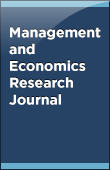
10.18639/MERJ.2022.9900073
Short Communication
Dec 31, 2022
Islamic Financial Services has been expanding all around the globe and has shown huge potential for developing economies. India, a developing economy, has shown less progress in Islamic Financial Services though there are several opportunities. The article examines the overview of the prospects of Islamic Financial Services in the Indian economy with a focus on regulations and conceptual understanding.
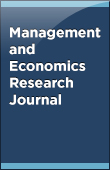
10.18639/MERJ.2022.1782409
Original Research Article
Dec 31, 2022
The objective of this study was to examine the relationship between liquidity and deposit insurance of Deposit-taking Microfinance Institutions (DTMFIs) in Low-Income Sub-Saharan Africa (LISSA). Several DTMFIs in the region defaulted in meeting withdrawals on deposits and collapsed with depositors’ funds. The failure of DTMFIs to be liquid has dire consequences such as contagion risk due to the sudden and unexpected deposit runs and oblivion of depositors’ funds, which further condemn the small savers into extreme poverty levels. Panel data from the Microfinance Information Exchange for the years 2006 to 2017 of 64 DTMFIs sampled across 18 LISSA countries was utilised. The estimated random effects results showed that explicit deposit insurance is positive and significantly related to liquidity. Additionally, the capital adequacy ratio and the Basel implementation dummy are positive and significant determinants of liquidity. The study concluded that designing and implementing explicit deposit insurance schemes mitigates liquidity risk in depository microfinance and maintaining adequate capital adequacy levels and implementation of Basel recommendations improves the liquidity positions of the LISSA DTMFIs. The study recommended formulation of deposit insurance policies that embrace microfinance deposits of all types and adherence to the Basel capital adequacy standards complements deposit protection in hedging liquidity risk.